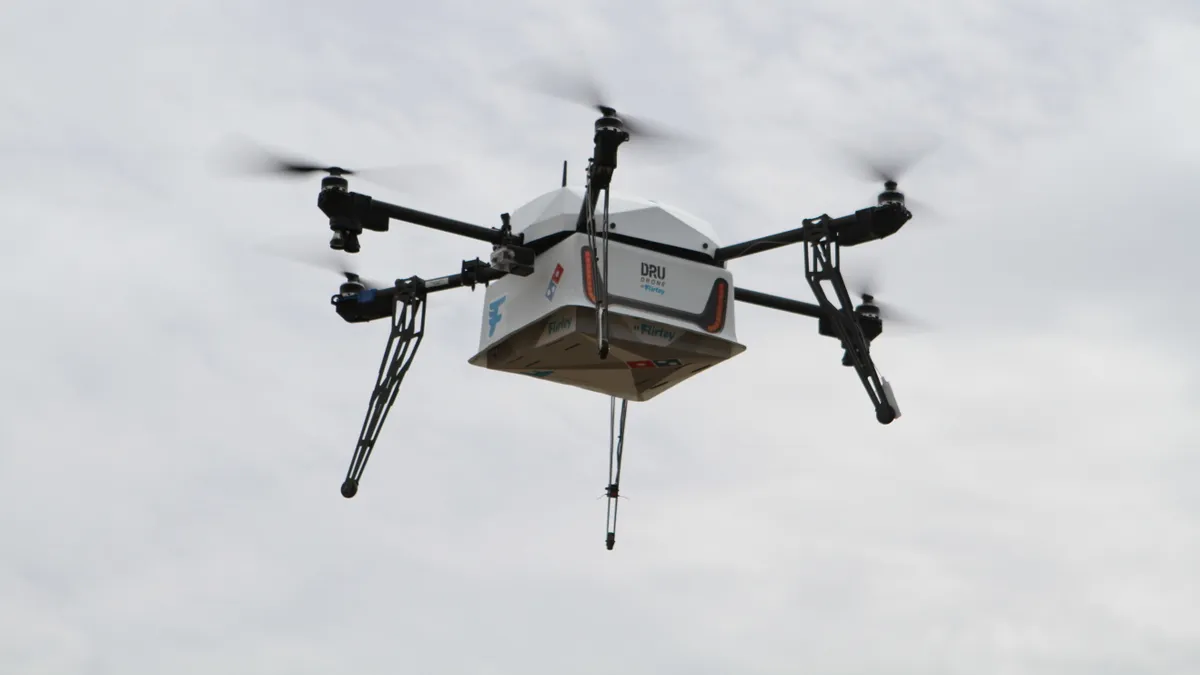Dive Brief:
- The White House will soon announce a new model for regulating drones, with the hopes of easing their deployment nationwide, industry officials told The Wall Street Journal.
- The new programs would test oversight of drones in shared airspace, reconciling federal, state, county and local rules. The result could be 10 or more separate programs across the country, though it's likely there will be fewer at the start.
- Currently, the Federal Aviation Administration (FAA) regulates aircraft at all altitudes, but the new rules would cede oversight to local communities for drones flying lower than 200 feet in test areas. The FAA would retain responsibility for aircraft flying between 200 and 400 feet, according to the Journal.
Dive Insight:
Drones have been the subject of speculation for years now, while their popular usage has proceeded at a snail's pace.
Though the FAA predicted that drones would fill the skies by 2021, little has been done to hurry their widespread adoption. And strangely, despite the repressive regulations surrounding general adoption, they've also been pinpointed as heading toward the technological "trough of disappointment."
Part of the disillusionment comes from slow-to-adapt regulations limiting clearly use cases for drones — such as disaster relief. After Hurricane Harvey, the FAA had to issue more than 100 drone authorizations to help with the relief efforts, according to the Journal. While the FAA was quick to act, more loose regulation could have, in theory, further expedited disaster relief efforts.
Now we have a possible breakthrough which would bring drones into the public skies, depending on what local authorities have to say about it. The Journal reports Congress is debating the prudence of delegating responsibility to local communities. But, industry onlookers remain enthusiastic about the possibility, anticipating high-approval ratings for drones by local authorities.
“Communities should be able to participate in the debate as 47% of Americans are interested in drone-based delivery services," Benjamin Carpano, head of content at ReportLinker told Supply Chain Dive. Carpano's firm surveyed 1,018 people last year on the potential acceptance of delivery drones in the U.S.
"There is a strong potential to convince the skeptical majority to embrace drone commercial usage if the FAA partners with local authorities to ensure a smooth implementation. Safety remains the main concern,” he added, recognizing the skies have yet to be clear for the technology.













